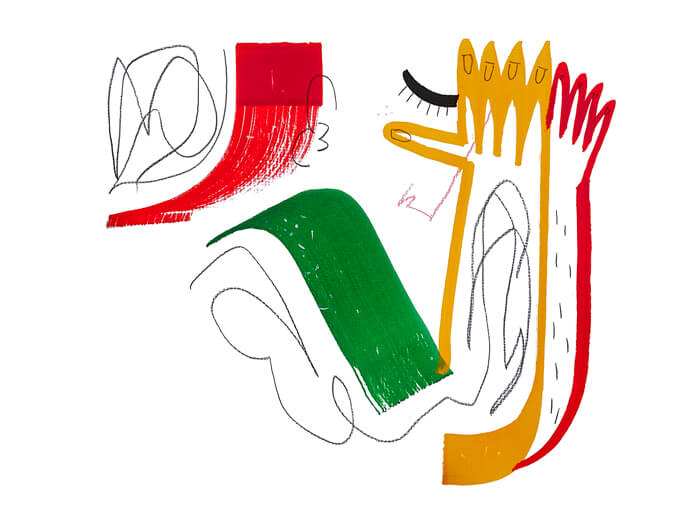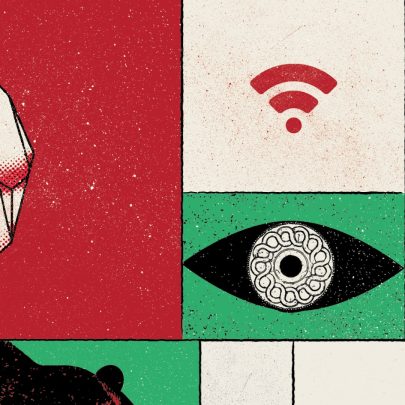Nov 29, 2019 Society
Emotional cheating can be a bigger deal than sex on the side, sex columnist Madeleine Holden finds out.
Anne (not her real name), a 35-year-old administrator based in Auckland, is telling me about how her seven-year relationship with her current partner began with an emotional affair. “I cheated on my emotionally abusive ex, and the third person I cheated with wasn’t a one-night stand like the previous two,” she explains, adding that the affair with her now-partner consisted of “catching up for food, going to art galleries and gigs, playing Scrabble online and, of course, text messages”.
“My ex and I were not good together and it progressively got more and more toxic, and I felt so shit about myself and my abilities,” she continues. “So, I started to allow other people space and time to fulfil me emotionally in ways I felt too empty to do myself.”
Emotional cheating is a nebulous concept, but relationship experts tend to agree that it’s a very real form of cheating — and sometimes more harmful than sex on the side. A survey of 63,894 participants published in the Archives of Sexual Behavior found that 35% of men and 65% of women would be more upset by their partners falling in love with someone else but not having sex with them than having no-strings sex outside the relationship.
Of course, one can lead to the other, and marriage consultant Sheri Stritof writes that emotional cheating is “often a gateway affair leading to full-blown sexual infidelity”. Anne tends to agree. “All physical cheating starts with emotional cheating,” she tells me, adding that her emotional affair eventually turned physical before she ended things with her ex.
The best explanations of emotional cheating recognise that it involves the cheater withdrawing intimacy from a partner in favour of a third party, usually in a way that involves deception, such as hiding text messages or lying about the frequency of encounters. But attempts to define it are often vague and over-inclusive. For example, relationship coach Jonathan Bennett told the Bustle website he defines emotional cheating as “a strong and intimate emotional bond with someone other than your partner”, and author Laken Howard writes that emotional cheating is “whatever you define it as” within the relationship. Both of these definitions are unhelpfully broad, but worse, they could be putty in the hands of abusers, who often use their jealousy as a cudgel to guilt-trip their partners and isolate them from friends.
Counsellors and relationship coaches often encourage individuals to detect emotional cheating through a series of indicators, like: your partner keeps communication with their “friend” secretive and hidden; they share intimate life updates and details about your relationship, especially problems within it; they are reluctant to introduce you to their “friend” or have the three of you hang out together; they put their “friend” before you.
For Anne, the key indicator in her situation was the “crush” feelings she bore for her now-partner, especially when texting him. “I don’t get hung up waiting for friends to reply or acknowledge my messages,” she says. “For me, emotional cheating requires that.” Others who admit emotional affairs online say that sexual frisson is a key indicator that a relationship has moved beyond the platonic.
But, much of the guidance is provided by self-declared “relationship experts” who have rigid, traditional views on relationships. “Suggestive language and sexual innuendo have no place in a healthy opposite-sex friendship,” claims author Bobby Box. M.Gary Neuman, author of Emotional Infidelity: How to Affair-Proof Your Marriage and 10 Other Secrets to a Great Relationship, goes even further: “Insulate and protect your marriage against emotional infidelity by avoiding friendships with members of the opposite sex.” Even the less overtly heteronormative and sexist advice often still assumes that a person’s most important source of intimacy should be their romantic partnership, an assumption that might strike young, queer and non-monogamous people in particular as old-fashioned and restrictive.
Just because emotional cheating is often misdefined to bolster dated ideas doesn’t mean that it isn’t real or harmful. A sudden withdrawal of intimacy in favour of a third party is cruel and hurtful, and dishonesty is a reliable sign that something has gone wrong in the relationship. As with any form of cheating, emotional affairs are a cowardly (albeit human) alternative to resolving issues within a relationship, or ending one that can’t be salvaged — although it’s worth bearing in mind the unique difficulties of leaving an abusive relationship, such as Anne’s. “I think ultimately I was looking for a reason to end the relationship and used cheating as a way to do it, rather than just walking away,” Anne explains. “It was the validation I needed to regain my confidence when I didn’t know how to get it without the assistance of others.”
This piece originally appeared in the November-December 2019 issue of Metro magazine, with the headline “Friends in need’.






